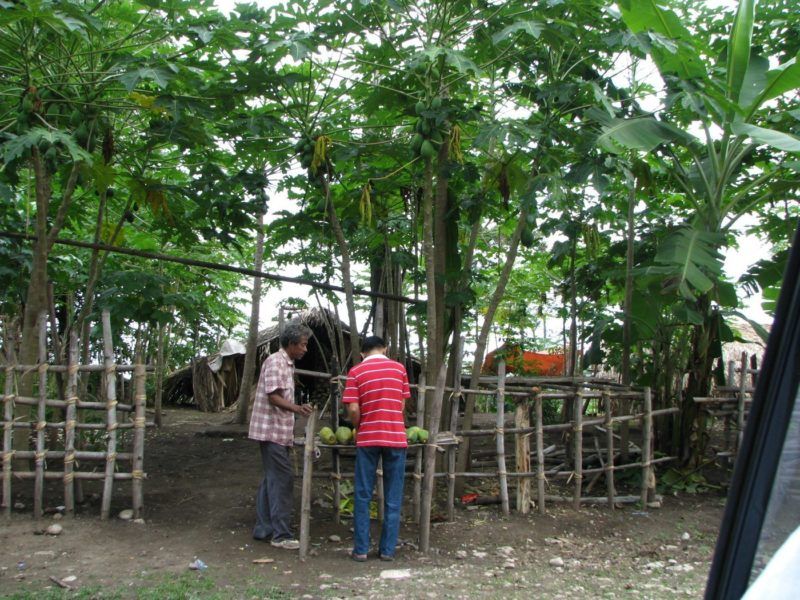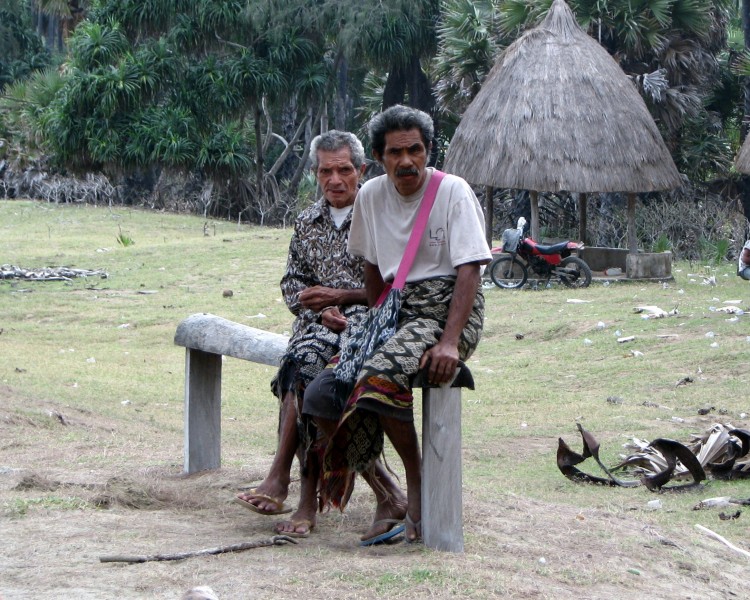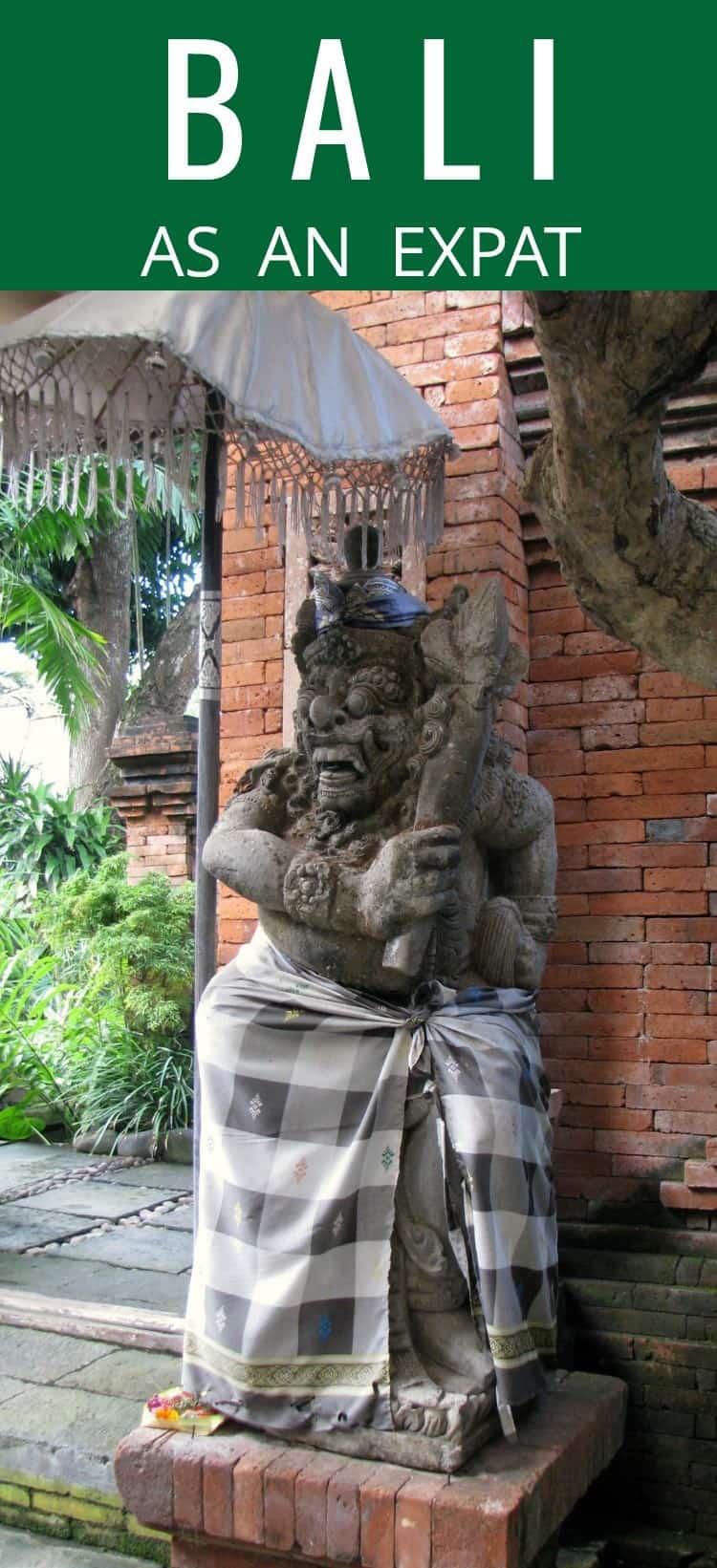They say that the journey of a thousand miles begins with one step. One of the first steps in our travel life occurred when we moved to Indonesia in 2010.
As We Saw It began as a diary and photo album for our families and friends when we visited Dominica in 2009 and then moved overseas the following year. Today, I’m bringing out the scrapbook. Take a look at my earliest journal entries as a first-time expat in Bali and see some of my first-time-in-Asia thoughts about living in another country and culture.
Moving has its ups and downs, but when it’s relocating overseas, there are a lot more ups and a lot more downs. I had a lot of things to say about living in Bali as an expat. I also had a lot of attitudes to adjust.
Here are some things I learned while living in Bali as an expat.
1. Living in Bali as an expat isn’t always easy

It’s not just the food or language that makes living in Bali as an expat so challenging. Everything seems to be different in Bali and it all takes some getting used to.
It also took a bit of fortitude to ignore some snide comments from those we left behind in America. For some reason, they couldn’t understand why we were living on our own terms, instead of doing what others expected of us.
Here’s one example of misconceptions: Our son’s friend asked him if we left America to escape the IRS. Pfft, no. Gosh, why do some people immediately want to think the worst of others? So uncharitable.
It’s more like we don’t like the high price of living in the States! Sure, a cup of kopi luwak may cost more than a day’s wages, but you can get a good, filling meal at a Balinese warung for $2-$3!
2. Everything is upside-down and backwards

Literally sitting on the other side of the world from everything and everyone I have ever known, nothing seems the same at all. The tides seem to change more rapidly and the stars move faster in the sky.
Perception, or reality?
So many things are different that I have begun to joke that everything is upside-down and backwards:
- As my American family and friends finish dinner, I’m thinking about breakfast.
- Cars drive on the left-hand side of the road.
- I flush by pulling the lever.
- The word for water is air.
- Most surprisingly, our hotel didn’t ask to see our credit card until the end of our stay.
Bali is so full of cultural differences, who knows what will happen next?
3. Nobody cares about time

If you dream of living on an exotic tropical island like Bali, one of the most important things you’ll need to learn is that time is actually not all that important. We might know it as island time in the Florida Keys and the Caribbean, but in Indonesia they use the term jam karet, rubber time.
Time just isn’t important here. They might actually have somewhere to be, but hey, no rush, they’ll get there eventually. This was clearly evident while visiting our friend Vonce’s family when we were on the island of Timor. We were told to be ready to be picked up for dinner at 7 pm … and he showed up at 8. (He apparently decided to run an errand first.)
The next morning, I waited around our room for 3 hours before the hotel staff finally dropped by to take my laundry to the cleaner.
And our two-hour drive from Kupang to Soe ended up as a full-day road trip.
Geez.
Attitude adjustment time. This whole easygoing attitude takes some serious getting used to. People who get frustrated by Indonesians’ lack of concern for schedules will find life to be miserable. It’s hard to adapt to their standard but there’s little other choice, because they certainly won’t adapt to mine.
Jam karet is probably a godsend for “type-A” Americans like me. Life back in America is rush, rush, rush. Doing three things at once means that none of them get 100% attention or 100% effort. Here on the other side of the planet I still forget that there really isn’t anywhere I have to be or need to do right away. I need to keep reminding myself that nothing will fall apart if I don’t start shopping exactly when I had expected to.
Sigh. I guess that is the beauty – and the challenge – of living in another culture. Perhaps there’s something to the zen concept of living in the moment. You know: Enjoy the ride.
4. It’s like people-watching, on steroids

Didn’t your mama ever tell you that it’s rude to stare?
Obviously, no mama in Indonesia. People seem to have nothing better to do than sit around and watch others. And I don’t mean people watching, I mean out and out STARING. It’s almost as if they are afraid to blink because they might miss something.
I don’t know … Do they find foreigners especially fascinating, or do they do that to everybody?
Maybe they know there’s nothing better on television. It’s either that, or I have lipstick on my teeth.
I don’t know how celebrities do it. It’s hard to get used to being blatantly stared at. I’m not that interesting, people. Really.
5. Getting personal can get uncomfortable. But not for them.

Indonesians have a very different sense of personal space. Sometimes I wonder if they even know what the term “personal question” means.
Meet a stranger and one of the first questions out of his mouth will be “are you married?” (Well, after he asks where you’re from. I’d say 90% of every Balinese I’ve met has asked me that, even that guy in Ubud who thought South America was the same as Florida.)
The American culture is oriented toward self, while the family group is more important to Indonesians. So the next question they usually ask: “How many children do you have?” That can lead to a whole slew of questions—unless you don’t have any kids at all, in which case they will proceed to wonder what’s wrong with you. (For all I know, they might not have a problem with asking “Why not?” But as I already have children, I don’t have any personal experience with that.)
I don’t mind the family questions too much, but I really hate it when someone asks, “How much did you pay for that?” Inevitably they will meet your response with a wince and hissed intake of breath, implying that you naively paid far too much for the item in question and that they are far smarter and could have gotten a better deal.
Nope, not gonna adjust my attitude on this one. I don’t care where you are in the world, it is unkind to insinuate that someone has bad judgment.
The next time somebody asks how much I paid for a shirt, I have half a mind to respond, “seven hundred thousand dollars!” The problem is, I’m not sure that Indonesians would realize that I was being sarcastic.
Inspired? Pin this post and share it with your friends!

6. Labor is ridiculously cheap here

I haven’t done any laundry or cleaning since I arrived, and neither has Dan.
Every day, two women come early in the morning to wash last night’s dishes, sweep and mop the floor, clean our bathrooms, change the linens, do the windows, and generally make the place livable. We also have a gardener, who also comes morning and evening to maintain the pool and remove any leaves or flowers that may have fallen from the frangipani trees overhead.
Our accommodation includes these services at no extra charge, but others hire full-time help for as little as $200 a month.
It’s true what they say: Labor is cheap overseas. Our maids take our clothes and linens to a laundry service whenever we ask. We can get a week’s worth of laundry washed and folded for about $5.
When I needed a cleaning, we were shocked to discover how cheap dental work is, I was pleased to see my clinic had Western facilities and fastidious hygiene practices. I struck up a conversation with an Australian in the waiting room and soon learned why so many fly to Bali when they need dental work: His wife was getting a tooth implant for $200!
When Dan mentioned that he’d lost a large filling, the dentist filled it as part of the exam. No extra charge. Not bad: a cleaning plus filling for nine bucks! (Though obviously, prices have increased since then.)
Attitude adjustment time. At first we thought we were taking advantage of the locals, but after living here for a bit we’ve changed our minds. The salaries are what they are used to, what they have come to expect, and they think it’s a fair price. Consider the plight of a woman I read. She was paid a Western maid’s salary for years and became accustomed to it. When her employer left, she refused to work for less, and has been unemployed ever since. So, who’s doing who a disservice?
Cheap labor? I could judge it by American standards and say, yes. But by local standards, it’s fairly priced, and the system works.
7. Taksi? Yes, please. Indonesian traffic is a nightmare.

The easiest way to get around Bali’s tourist areas (Kuta, Seminyak, Sanur, etc.), is to flag down a Blue Bird Taksi. The first two kilometers cost just 5000 Indonesian rupiah (IDR), which is about 60 cents. Our last trip to the grocery store cost 47,000 IDR ($5), due not so much to the distance as to the traffic.
Traffic in Bali is … er, different. There are as many motorcycles/motorbikes as cars on the roads and the bikers weave between and around cars with abandon. If there’s a way to keep going, they’ll find it … even if it means going up onto the sidewalk to do it.
Yikes.
Drivers are no better. On the major airport bypass road, which is two lanes in each direction, you’ll often see cars four wide during rush hour. It seems no one observes the lines in the road and the adjacent gravel shoulders frequently become another lane for cars and cycles.
I nearly freaked the first time I rode with Vonce’s brother. He decided to turn left, directly in front of oncoming traffic. I fully expected our car to be broadsided but instead, they stopped and waited. No big deal. (What? Back in America someone would be threatening a lawsuit!)
We’re getting used to Indonesian driving. Forget what you learned in Driver’s Ed. Here’s the way it works in reality:
- Ignore stop signs if traffic is light.
- As to stop lights: Apparently if they haven’t started moving, you can keep going.
- If you must stop before you get through an intersection, they’ll pull up to your car or bike and wait or (if they can) drive around you.
- If you see a driver waiting to enter traffic, don’t stop to wave him in; he’ll have no idea what you’re trying to do. Rather, let him find his own way. As soon as he sees a meter or two of space between cars, he’ll pull in just fine on his own.
For all the apparent confusion, Balinese are decidedly calm drivers. Balinese don’t honk, they beep. Beep, I’m coming around a blind corner. Beep, taksi available, do you need a ride? Beep, heads up, I’m driving around you. On those rare occasions when I’ve heard an impatient Honk, it’s always been a Westerner at the wheel. Not quite sure what to make of that!
8. You take your life into your hands on a motorbike

We finally tired of relying on Blue Bird Taksi and rented a motorbike. The cost was 700,000 IDR per month, which comes to about $75. Interestingly, they didn’t ask for a deposit or driver’s license. They just Dan’s asked for his passport number, our villa’s phone number, and the first month payment up front.
We are now learning how to go with the flow of traffic.That means it’s OK to drive between cars anytime you want, just as long as your mirrors will clear the space. I’m not sure we’ll ever feel comfortable driving on the sidewalk, though.
We had to stop too suddenly last week and took a spill. God was good: There was no oncoming traffic. Witnesses ran to fuss over us. They wanted to make sure we were okay and the bike had survived. Thankfully we don’t have any permanent injuries, just a few bruises and a couple of skinned knees and elbows.
The bike is fine, too. Fortunately, if we’d had to replace it, we’d have had to pay only 15,000,000 IDR for a new one.
Yes, motorcycles are ridiculously cheap to buy here. That is one adjustment that’s easy to make!





Hi Linda, This was a lovely piece. I could not help but chuckle at some of your experiences as I am now an expat living in Jakarta. Im originally from South Africa and yes this truly is world’s apart. I had not ever been to Indonesia prior to moving here for work and it really does take a large amount of attitude adjustment. I think you just scratched the surface here but it was a great read. Thank you!
You’re welcome, Kaylini. It was a challenge balancing my western-American viewpoint and the Indonesian mentality.
Wow, Linda! I had no idea you two had lived in Bali! How fabulous! While reading your article, I could not help but notice the similarities of the Bali people and the Ecuadorians. The questions they ask (and think nothing of asking them) are almost exactly the same ones the Ecuadorians will ask you. As you may remember, the words ‘planning’ and ‘logic’ are absolutely not in the vocabulary of the everyday Ecuadorian. Also, time is of no essence here, as well. Time means nothing. It is amazing, though, after 5 years, we have adapted very well, and we go nuts when we visit the states, even reverting to our type A personalities to survive. Living in another culture is an adventure within itself!
Your Bali adventure sounds awesome! Thank you for sharing!
It was, Judy, and so was our life in Ecuador. I had forgotten about the mañana mentality there. Maybe it’s something to do with the warmer climate?